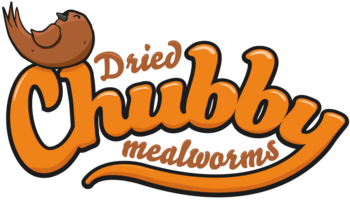Why Choose Chubby?
Welcome to Chubby Mealworm’s blog. We are thrilled to have you onboard and we can’t wait to show you all the great uses for our mealworms. That walks us back to the question “Why Chubby?”
Well…let’s find out!
Quality
This is important. You want the best and safest treats for your pets and backyard songbirds. Our worms are only non-GMO, 100% vegetarian fed. Organic poultry keepers are assured of a great treat for their birds – and the chickens second that. Safe, clean and packed with hi-energy protein and fat, these snacks are also ideal for all insect–eating songbirds and pet birds. Click here to learn more about what mealworms really are.
Chickens and Other Poultry
Chicken keeping as a hobby is off the charts — and we know why. Chickens are intelligent and charismatic birds that quickly strut their way into your life. Whether you choose to raise chickens for eggs or for pets – providing treats is important to ensure you develop a happy and fun relationship with your flock. Chickens are energetic hunter/gatherers that live in tight social-based groups. The birds spend their days snapping up greens and searching for protein sources. Protein is critical for growing birds, for feather regeneration, egg-laying, breeding flocks and for general health. Mealworms provide this essential nutritional component and you can trust Chubby to give your chickens safe, non-GMO worms.
Prevent behavioral problems with mealworms:
Stay tuned for more training tips! Chickens are perceptive and extremely intelligent. They are so easy to teach…and it helps you to bond with your flock.
Mealworms are the ideal diet supplement for vegetarian poultry keepers who want to address their chickens’ protein needs without adding meat to the bird’s menu. Chickens are omnivores (they are not vegetarian) and they spend quite a bit of their foraging looking for meat sources. These birds will eat amphibians, small rodents and reptiles. But “meat” for chickens, and other poultry, means insects too! And Chubby makes that requirement easy to fulfill.
Happy Herps and Fish
Keeping amphibians, lizards and other reptiles can be challenging. They have distinct nutritional needs that require careful attention in order to ensure they stay fit and feisty. Dried mealworms provide the proteins and amino acids necessary to their diet.
Feeding Tips
If your pet resists non-live foods, try mixing the dried mealworms with live insects. This should create the movement desired and invite your herp to begin feeding.
Mealworms can be soaked to mimic natural textures. This is a great idea if you are going to be feeding the worms to fish. Wet foods help to prevent digestive upset in many fish species (especially goldfish).
Just as with chickens, feeding treats to your fish, amphibians and reptiles helps to create “draw.” When fed consistently, your pets learn to anticipate and associate good things with you. Observe interest and curiosity behaviors in your pet – they will orient towards you and begin to act excited. Many will begin looking towards where you keep the food! As we know, fish and herps are delightful and intriguing animals.
Wild Birds
Many songbirds are insect eaters – especially during nesting season (even hummingbirds eat insects). If you live in cold winter zones, birds appreciate the added fat and protein found in mealworms. You can mix the dried worms in the seed itself, stir them into peanut butter or suet or scatter them in specially designed mealworm feeders.
If you notice the birds are resistant to trying the worms at first- purchase some live mealworms to set into the bowl with the dried ones. Be sure to use a slippery plastic or glass feeding bowl or the live worms will head for the hills!
Gift Ideas
If you have friends and family that live with poultry, pet birds, fish or herps, they would love a gift of Chubby Mealworms! Choose from a wide selection of packages and sizes. Wild bird enthusiasts love these worms too. Birding is the fastest growing hobby in the US and Canada. Feeding birds helps create awareness of serious issues like habitat loss and threatened wildlife populations. Giving the gift of a bird feeding station with mealworms and seed makes everyone happy and allows each of us to take one fun and positive step towards helping the natural world.
It’s your turn. Share your experiences and uses for Chubby Mealworms – we love hearing from our customers. Do you make treat balls for the bluebirds? Manufacture mealworm munchies for your favorite reptile or hedgehog? What about those demanding chickens? You know they only want the best mealworms in their coop. Leave your great tips below!


